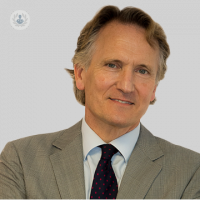narcolepsy
Written by:Narcolepsy is a sleep disorder of neurological origin that in Europe suffer between 3 and 5 of every 10,000 inhabitants. It usually has a genetic origin and manifests between 20 and 30 years of age. Its main symptom are episodes of excessive daytime sleepiness , of variable duration and intensity. They appear daily in both monotonous situations (reading, watching TV) and inappropriate (driving).
In the face of intense emotions, crises arise in which the patient's muscle tone drops sharply, leading to falls.. When falling asleep and upon awakening may appear paralysis of sleep accompanied by hallucinations. In addition, sleep is fragmented and is sometimes accompanied by parasomnias such as nightmares.
Other symptoms are the automatic behavior, in which activities are carried out that are not remembered later, general disorders in the mood and eating disorders.
Treatment of narcolepsy
At the time of treating the disease each patient must be evaluated individually. Factors such as age, associated diseases and lifestyle are taken into account. Your medical history should be evaluated to rule out other possible disorders, and also to perform a sleep test .
Sleep hygiene is the main treatment for narcolepsy. It is essential to maintain a regular sleep schedule, avoiding alcohol and central nervous system depressants. Physical exercise is recommended, increase the number of hours of night sleep and take short naps scheduled during the day.
Drugs can also be used. Stimulants can reduce daytime sleepiness and antidepressants allow control of sleep paralysis and hallucinations.



